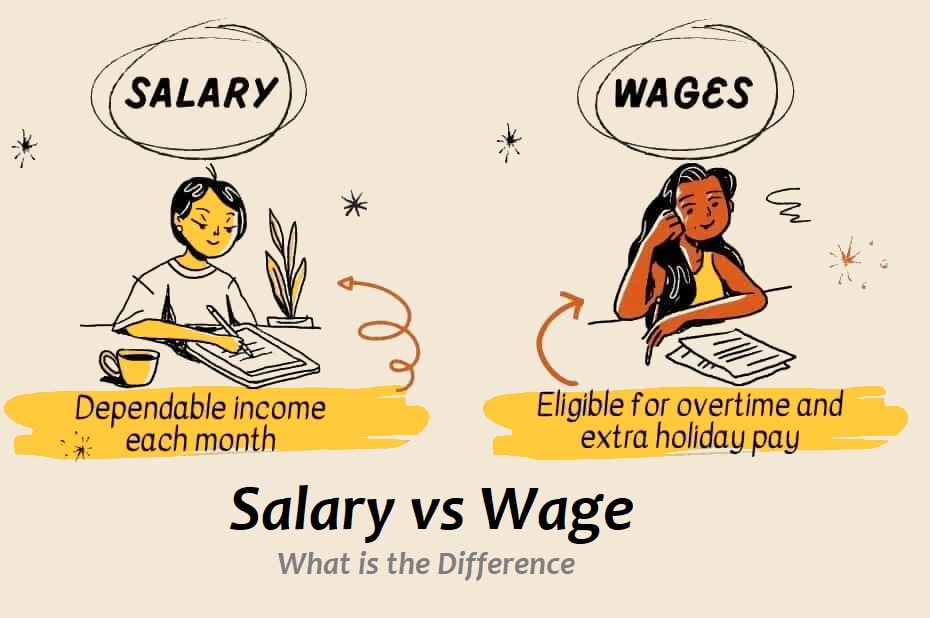Salary vs Wage
| COMPARISON | SALARY | WAGE |
|---|---|---|
| Meaning | This refers to a type of payment that is predetermined and paid annually to an individual for the work they have completed. | This refers to a type of payment that varies based on the number of hours worked to complete a specific amount of work. |
| Skills | Skilled Personnel | Semi-skilled or unskilled |
| Type of cost | Fixed | Variable |
| Rate of payment | Fixed-rate | Wage rate |
| Payment cycle | Monthly | Daily |
| Basis of payment | Performance basis | Hourly basis |
| Paid to whom | Employees | Labor |
| Nature of work | Administrative-office work | Manufacturing-process work |
| KRA (Key resultant area) | Yes | No |
| Extra pay for extra hours | No | Yes |
Definition of Salary
A salary is a prearranged payment amount that is mutually agreed upon by an employer and employee. This payment is fixed and typically paid at regular intervals throughout the year, such as monthly or bi-weekly, regardless of the number of hours worked. The salary amount is determined by the employee’s job responsibilities and overall performance and is usually expressed as an annual figure that is divided into regular payments throughout the year.
Definition of Wages
Wages are the amount of payment an employer gives to an employee for the number of hours or days worked. Unlike salaries, wages are not fixed and can vary depending on the amount of work completed. Wages are usually paid on an hourly or daily basis and are commonly used to compensate manual or hourly workers.
Key Differences Between Salary and Wages
The differences between salary and wages are as follows:
- Salary is a fixed compensation paid for an employee’s performance, while wages are variable compensation paid based on the hours worked to complete a certain amount of work.
- Skilled employees who generate revenues for the company receive salary, while semi-skilled or unskilled workers, such as carpenters, welders, electricians, etc., receive wages for working hourly.
- The cost of salary is fixed and paid monthly, while in wages, the cost is variable and may vary based on daily performance.
- Once decided, the salary remains fixed, but in the wage system, the wage rate changes, and the individual is paid according to the prevailing wage rate.
- Salary is generally paid at fixed intervals, such as monthly, while wages are paid daily based on the hours worked.
- Salary is based on an individual’s performance, while wages are based on the amount of work done in hours.
- Salary is paid to employees who possess skills and efficiencies in completing office work, while wages are paid to laborers engaged in manufacturing processes who work hourly.
- Salary is given to those engaged in administrative or office work jobs, while wages are paid to those engaged in manufacturing processes requiring unskilled or semi-skilled workers.
- Salaried employees usually have a Key Result Area (KRA) set for the month to judge their performance, while waged employees are judged based on the hourly work done and do not have KRA.
- Salaried employees are not paid additional compensation for extra hours, while wage earners receive additional pay for the extra hours they work.
Conclusion
After analyzing the comparison, it can be inferred that a salary is a predetermined amount of payment given to an individual at regular intervals for work done within a specific period of time. On the other hand, wages are payment that varies based on the number of hours spent completing a certain amount of work

